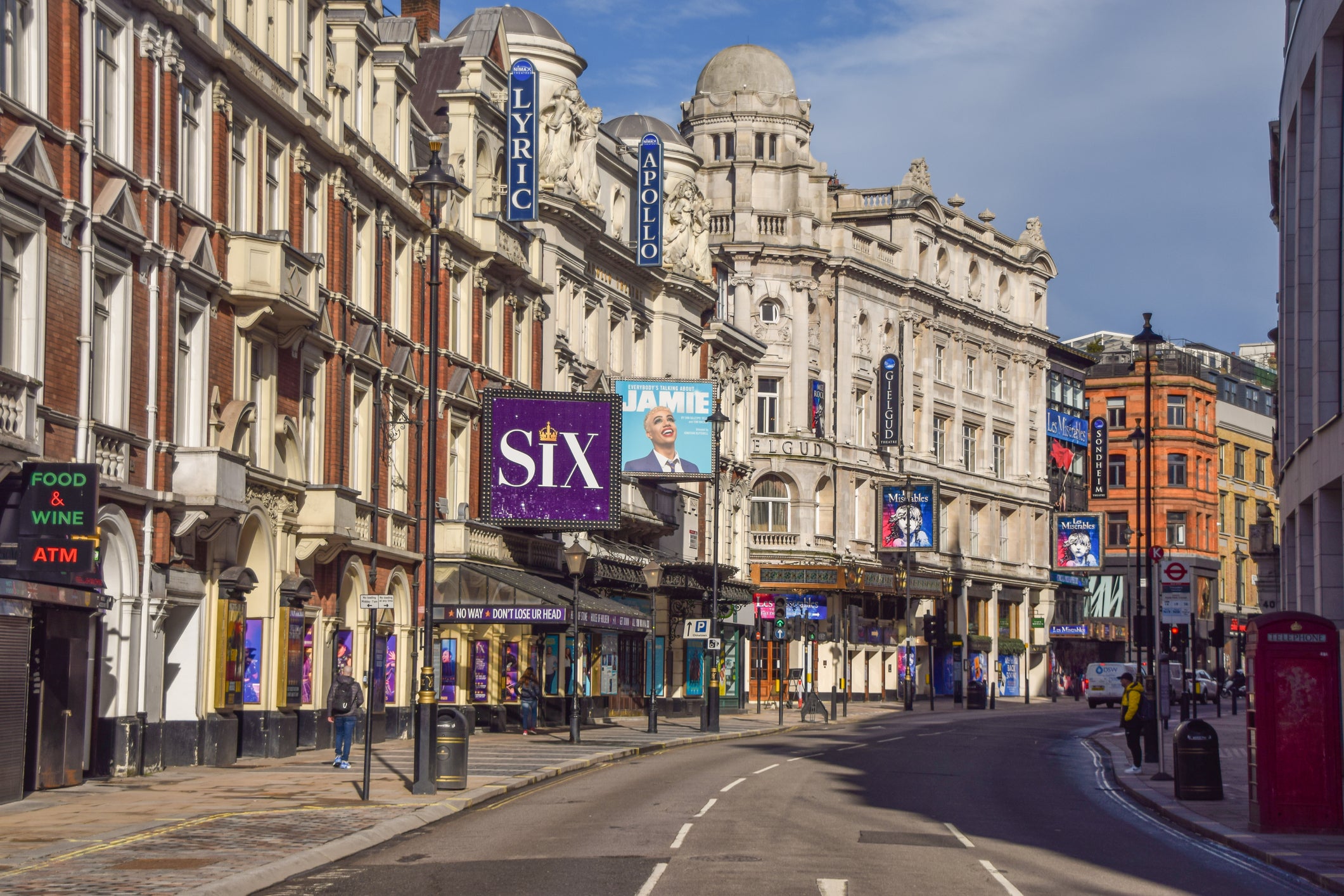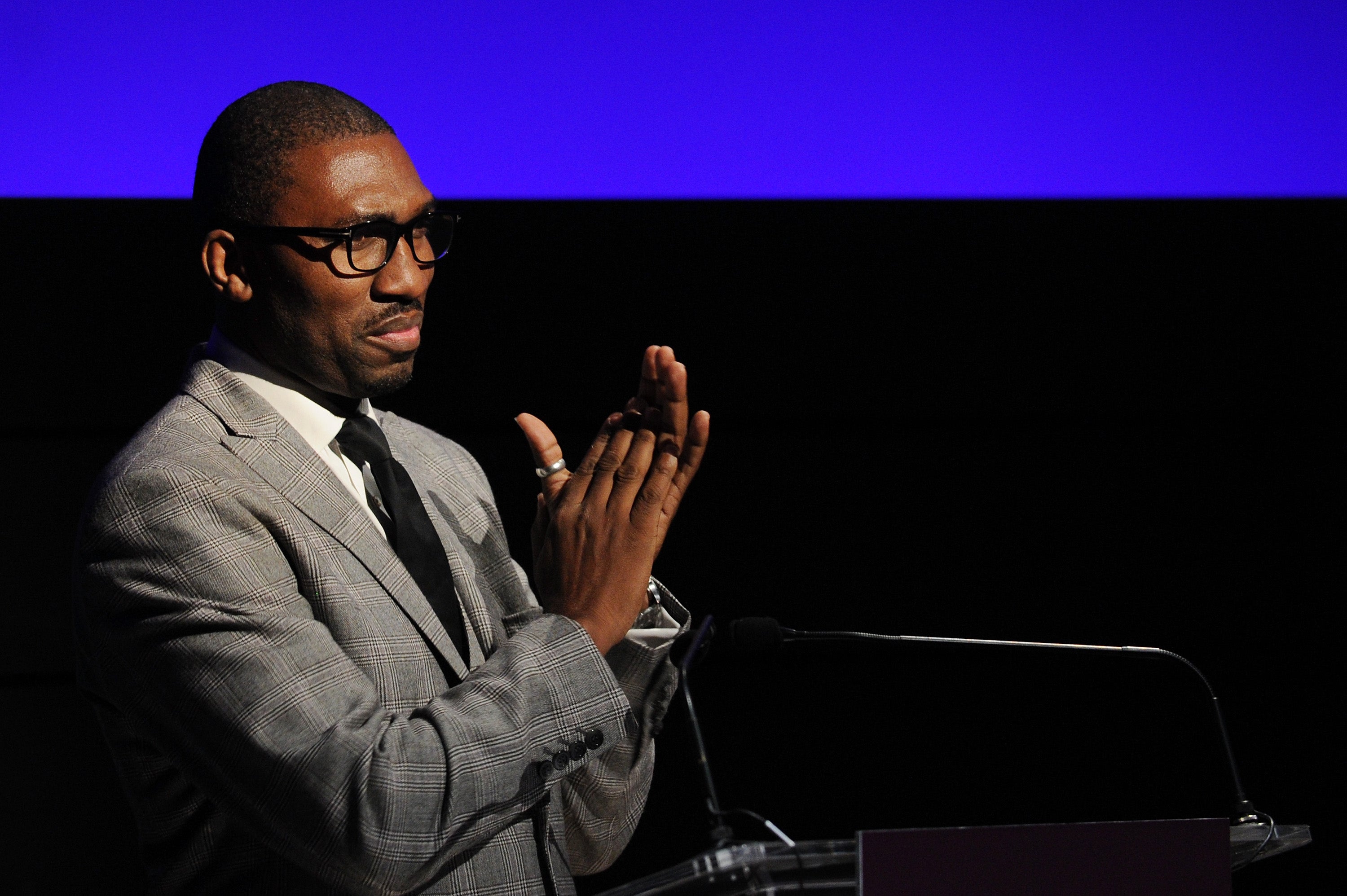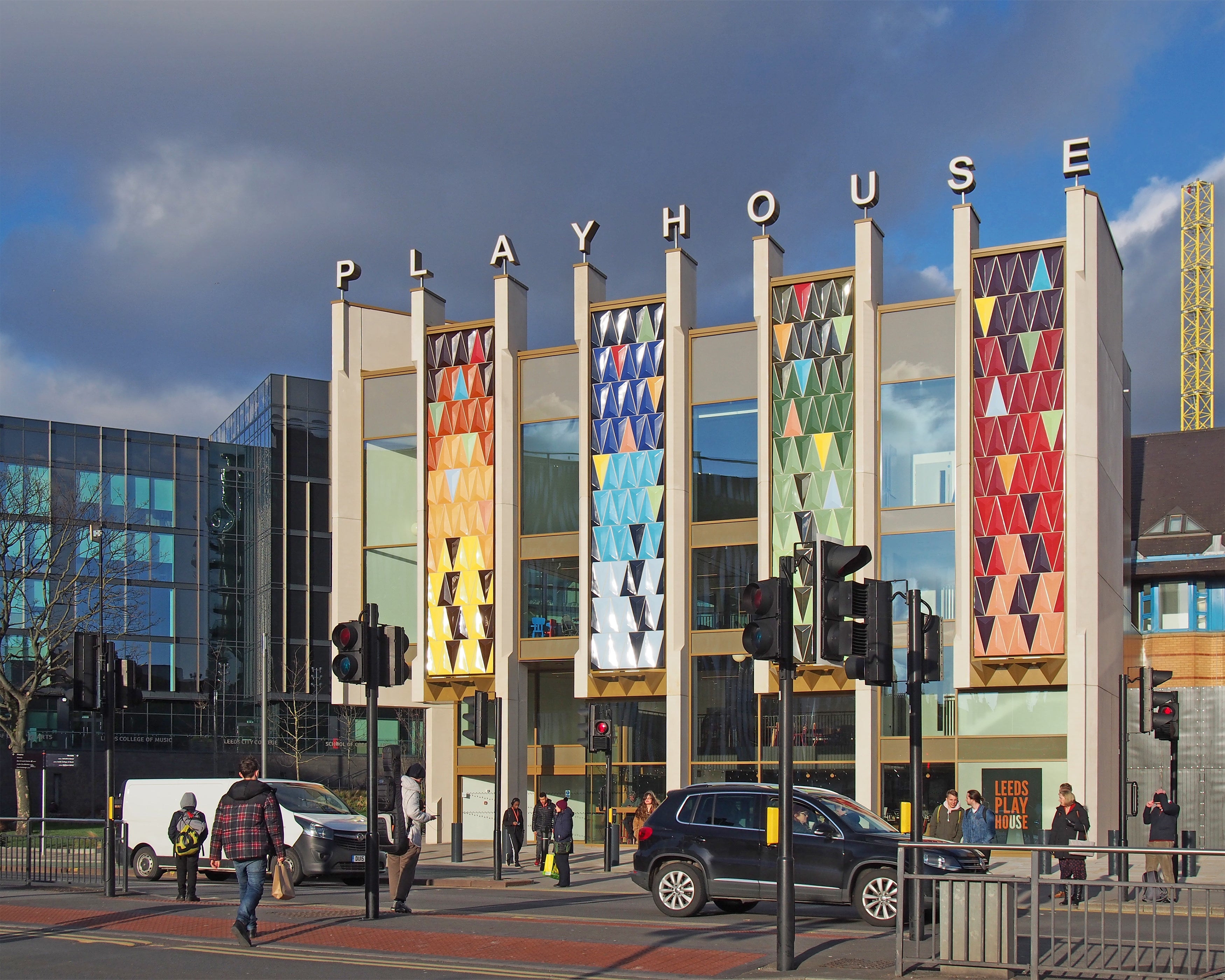Are theatres leaving disabled people behind as they reopen?
Some people with disabilities feel they are being forgotten, and that struggling venues will concentrate on producing in-person shows and forgo online offerings, or cut their in-person services for disabled people, writes Alex Marshall

Your support helps us to tell the story
From reproductive rights to climate change to Big Tech, The Independent is on the ground when the story is developing. Whether it's investigating the financials of Elon Musk's pro-Trump PAC or producing our latest documentary, 'The A Word', which shines a light on the American women fighting for reproductive rights, we know how important it is to parse out the facts from the messaging.
At such a critical moment in US history, we need reporters on the ground. Your donation allows us to keep sending journalists to speak to both sides of the story.
The Independent is trusted by Americans across the entire political spectrum. And unlike many other quality news outlets, we choose not to lock Americans out of our reporting and analysis with paywalls. We believe quality journalism should be available to everyone, paid for by those who can afford it.
Your support makes all the difference.Before the pandemic hit last year, Michelle Hedley could only go to her local theatres in the north of England if they were doing a captioned performance.
That happened five times a year — at best, said Hedley, who is deaf.
But during the pandemic, she found she could watch musicals all day and night if she wanted, as shuttered theatres worldwide put shows online, often with subtitles. “I started watching anything and everything simply because I could,” Hedley, 49, said in an email interview. “Even subject matters that bored me. It felt like I viewed more theatre than I had done in a lifetime.”
Now Hedley fears this access is about to be lost.
On Monday, theatres, museums and cinemas started reopening across England, some for the first time since March 2020. Audiences have been so grateful to be back inside theatres, they have clapped following the announcements to turn cellphones off.
But for many disabled people, who make up 22 per cent of England’s population and have diverse requirements — such as wheelchair access, audio description or “relaxed” performances where audiences are allowed to make noise — this moment of reopening is causing decidedly mixed reactions. Some fear being forgotten, and that struggling venues will concentrate on producing in-person shows and forgo online offerings, or cut their in-person services for disabled people.
Before the pandemic, Boué, 58, would only visit museums if she was convinced a show would be worth the huge amount of energy the experience took
There is little evidence of that so far, and some venues say they will continue to include disabled people, but the real effect of venues’ reduced budgets won’t become clear for months.
“I will be forced to go back to being grateful for just five shows a year,” Hedley said. “It is very frustrating.”
Others are concerned, too. “I just have this sense of being left behind, with people being so euphoric that they can do things in the flesh again,” said Sonia Boué, an artist who is autistic.
Before the pandemic, Boué, 58, would only visit museums if she was convinced a show would be worth the huge amount of energy the experience took. Getting the train from her home in Oxford to London could be overwhelming, she said, as could dealing with crowds in a packed museum. “I’ve been in situations when I’ve just wanted to throw myself down on a station platform and lose it,” she added.
But online, she could view shows whenever she wanted. Last year, she went back again and again to exhibitions by artist Tracey Emin and photographer Jo Spence, with both influencing her own art. “The whole experience was so rich and wonderful.”
Britain’s cultural venues have struggled over the past 12 months, with thousands of layoffs. Many venues only survived the pandemic thanks to emergency funding from the government.
Some high-profile venues have said they will keep working to include disabled people as they reopen. Kwame Kwei-Armah, the artistic director of the Young Vic theatre in London, told The Guardian in May he wanted to livestream at least two performances of all future shows, with viewers limited to about 500 per stream, mimicking the theatre’s capacity. The Young Vic intends to guarantee some of those tickets for disabled people, a spokeswoman added in an email. On Friday, the Almeida Theatre in north London said it would film and digitally release next season’s shows “where possible”, but gave no further details.

But for regional theatres that are coming out of a year without ticket sales, streaming may not always be possible. “It’s a huge financial outlay, making films, so you really need to think about it from the start,” said Amy Leach, the associate director of Leeds Playhouse. She hoped her theatre would do that for future work, she added.
People’s concerns are not just about cuts to streaming. Jessica Thom, a performer and wheelchair user who’s made work about her Tourette syndrome, said that she was worried that some venues may see online shows as an accessibility alternative to offering the relaxed performances she loves to go to, where people are free to move around or make noise. “The anxiety about being written out is real,” she said.
Last week, English National Opera said it would double the number of relaxed performances for its next season – albeit only by one to two performances a season.
Leanna Benjamin, a wheelchair user who has myalgic encephalomyelitis and often experiences pain, said she worries that venues may drop online ways of working that have flourished during the pandemic.
In the past year, Benjamin was commissioned to write three short plays — her first assignments as a playwright. “I’m like, ‘Thank you, Covid!’” she said. “You may have made me be isolated, and made life feel really tough, but on the other hand you’ve launched my career.”
Those commissions included work for Graeae, Britain’s leading deaf and disabled-led theatre company, as well as The Unknown for Leeds Playhouse, which is streaming until 5 June.
She has been helped in such work by being able to hold virtual meetings and rehearsals. “My experiences have been incredibly inclusive,” she said, “and I think a lot of us are having the same concerns about ‘Will we go back to old ways of working, when we’re told we need to be in the room?’”

At Leeds Playhouse, Amy Leach said she didn’t think that would be the case. Her theatre intends to keep using video technology so it can expand work with disabled people in the industry.
However, not all disabled people have found the pandemic liberating in terms of access to culture. Joanna Wood, who is blind in one eye, and can only see blurred shapes with the other, said for her, the pandemic has been a disaster.
Before the pandemic, she’d attended plays or gone to art exhibitions at least once a week, taking advantage of a boom in audio description (for a play, that involves a describer explaining what happens onstage in between gaps in dialogue).
But it took months for theatres to start putting audio-described content online, she said. There were some highlights, she added — the Old Vic in London made sure all its livestreamed shows had audio description — but she often felt like she had gone back to the moment five years ago when she started losing her sight and couldn’t access culture at all. “It felt completely disabling,” she said of last year’s experiences.
Read More:
Boué said she just hopes British theatres and museums keep disabled people in mind. It should be easier than ever to identify with disabled people, she said. When the first lockdown hit, “it was this jaw-dropping moment when everyone felt completely immobilised and like they didn’t have the freedoms they’d always taken for granted,” she said.
For once, “it was like disability was really everyone’s problem,” she added.
© The New York Times
Join our commenting forum
Join thought-provoking conversations, follow other Independent readers and see their replies
Comments